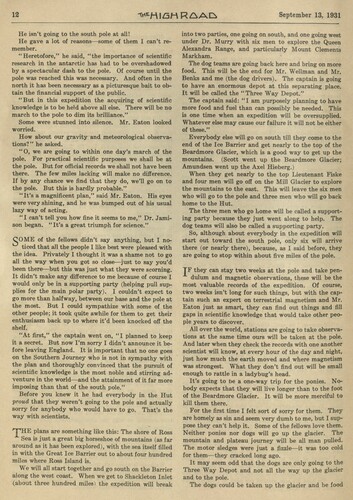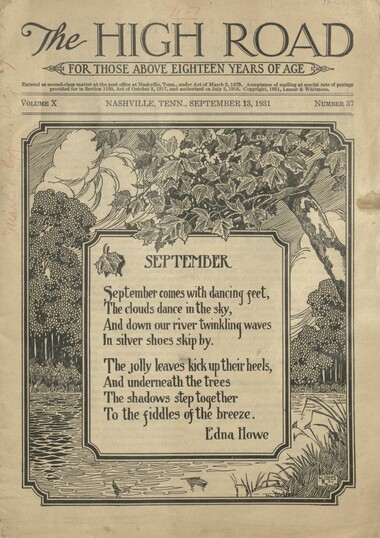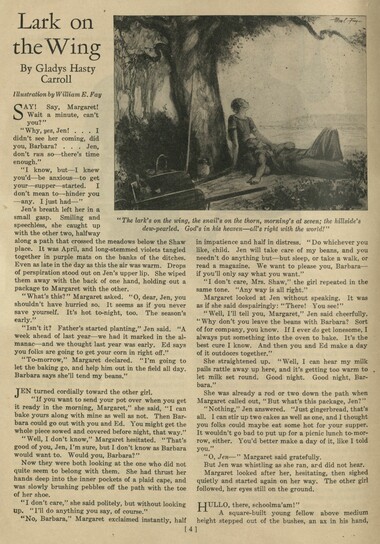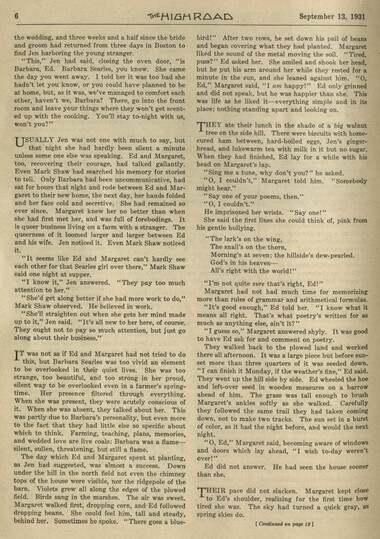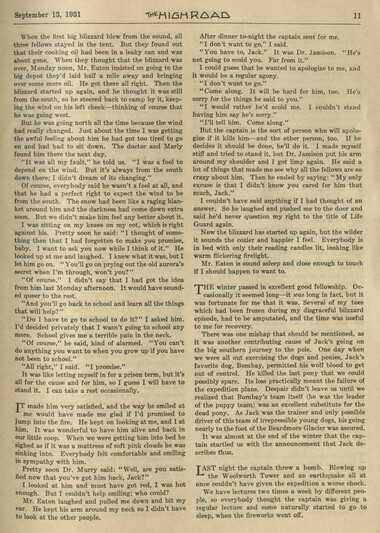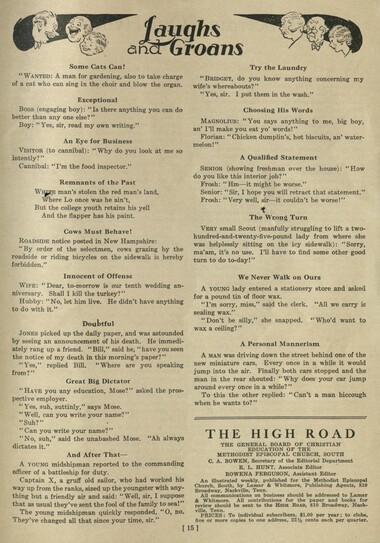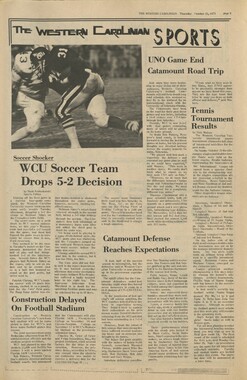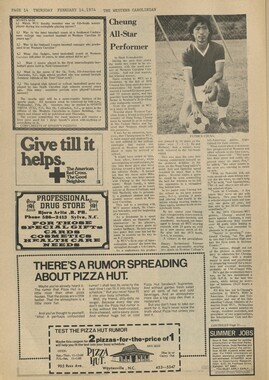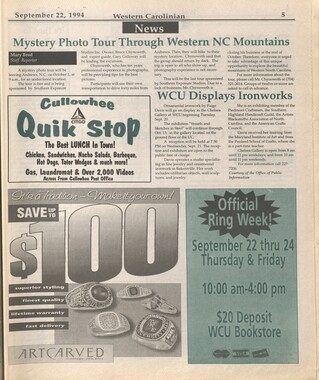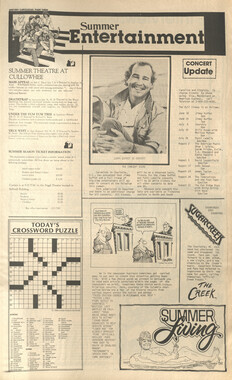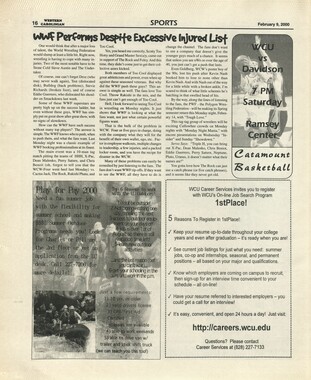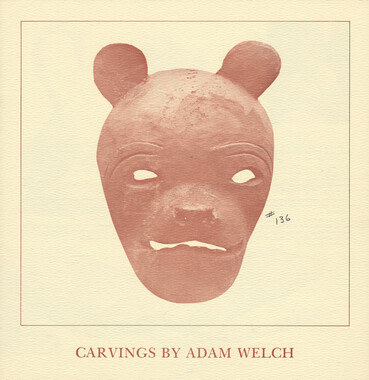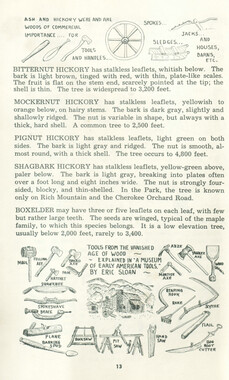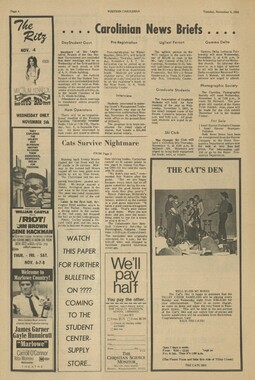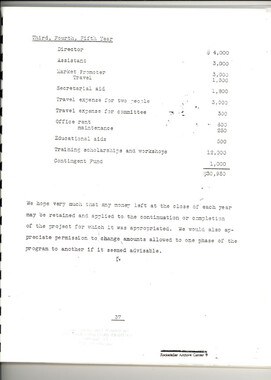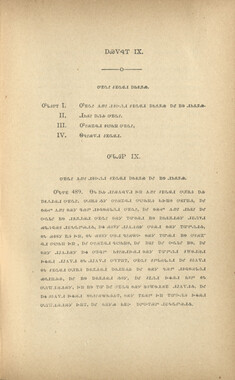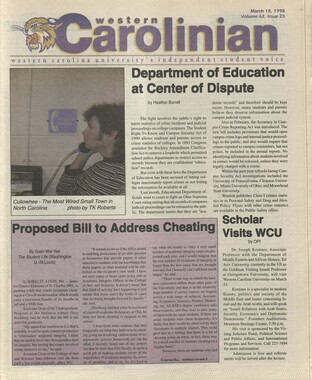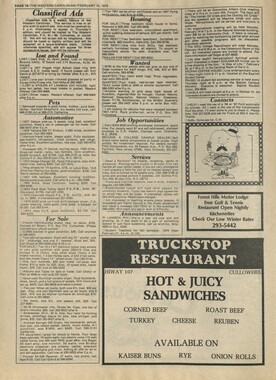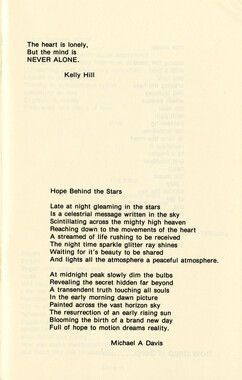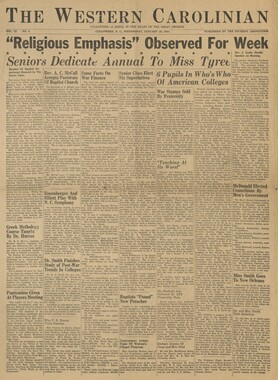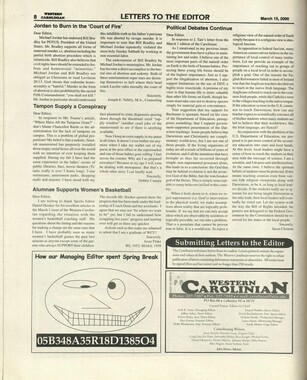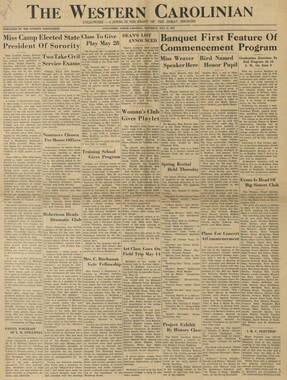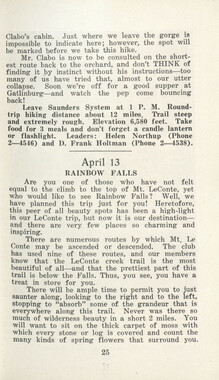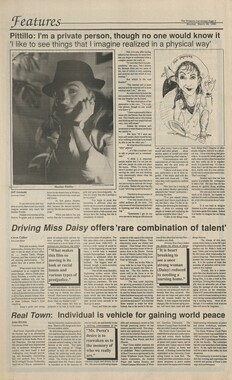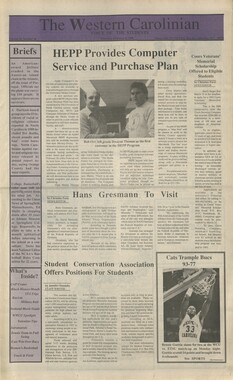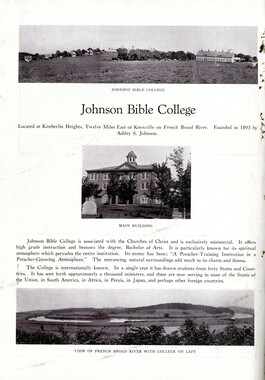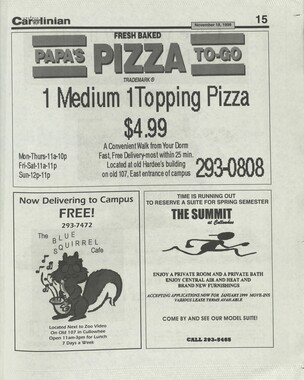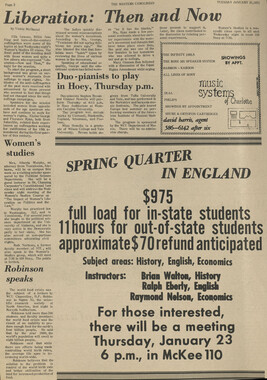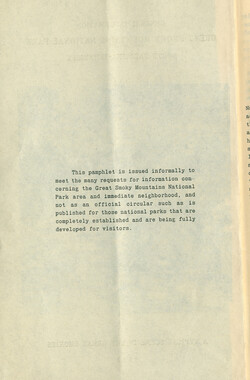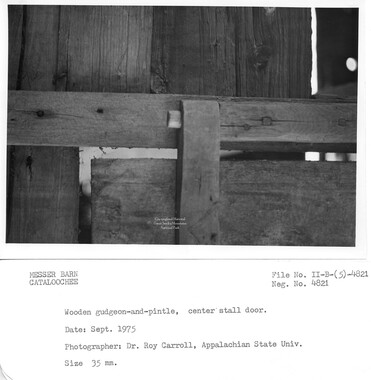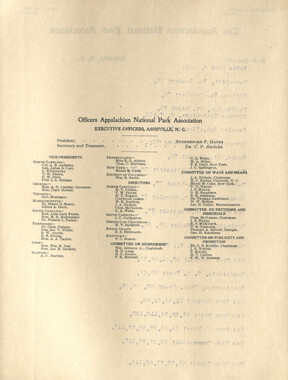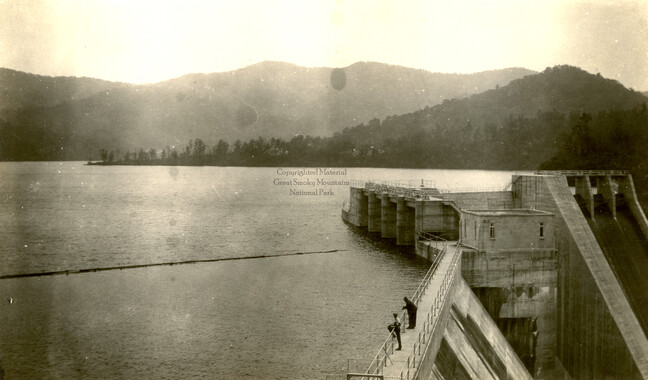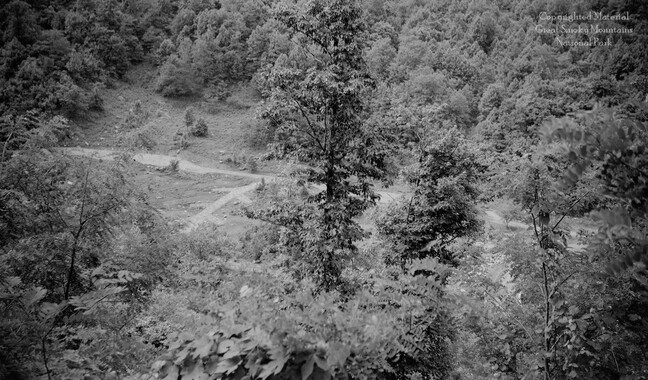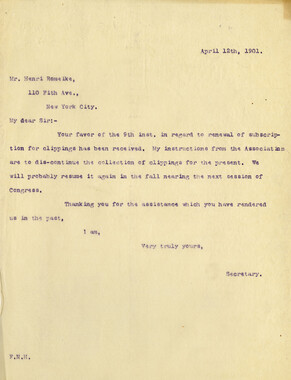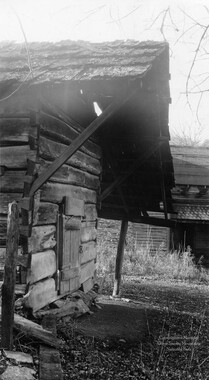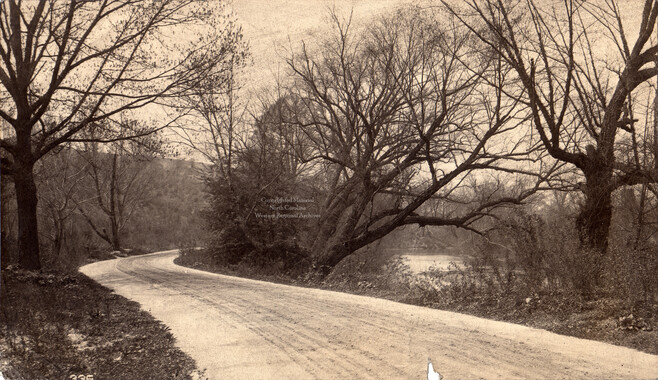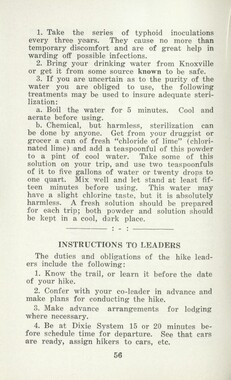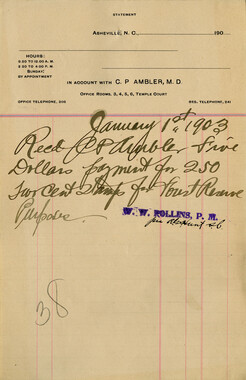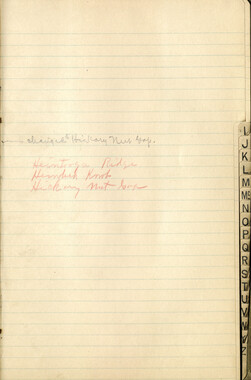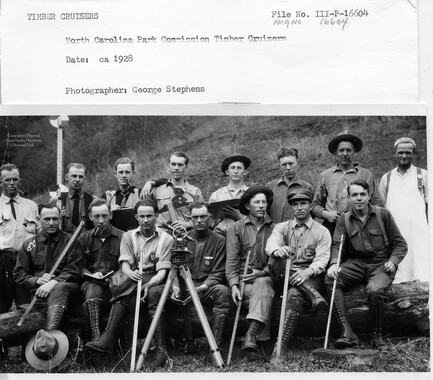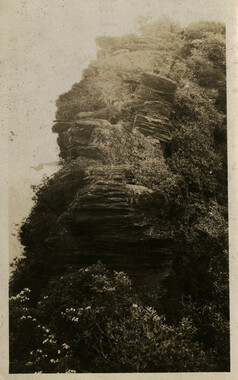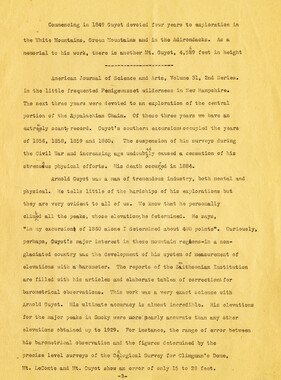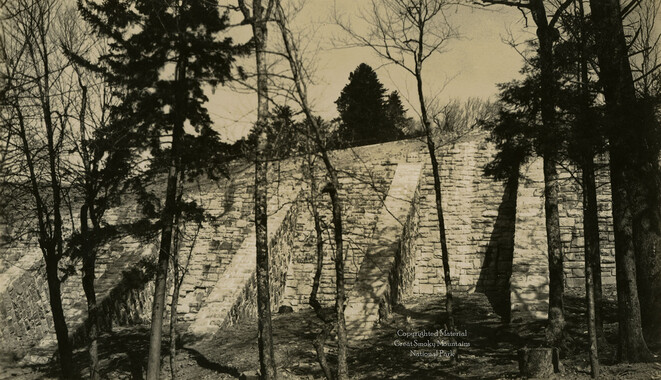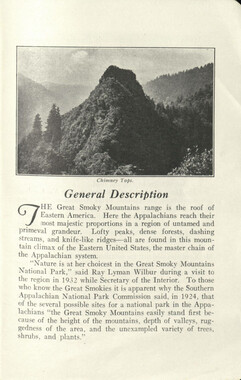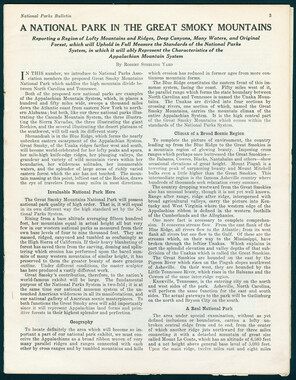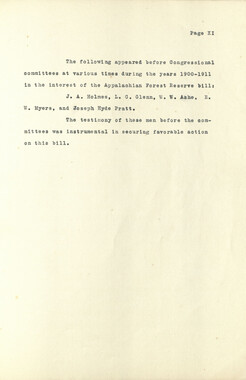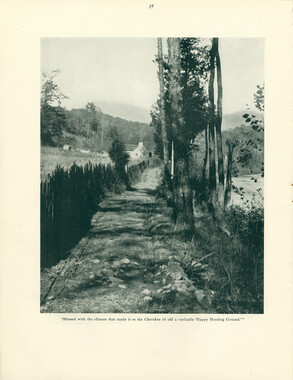Western Carolina University (20)
View all
- Canton Champion Fibre Company (2308)
- Cherokee Traditions (293)
- Civil War in Southern Appalachia (165)
- Craft Revival (1942)
- Great Smoky Mountains - A Park for America (2767)
- Highlights from Western Carolina University (430)
- Horace Kephart (941)
- Journeys Through Jackson (154)
- LGBTQIA+ Archive of Jackson County (24)
- Oral Histories of Western North Carolina (314)
- Picturing Appalachia (6772)
- Stories of Mountain Folk (413)
- Travel Western North Carolina (160)
- Western Carolina University Fine Art Museum Vitreograph Collection (129)
- Western Carolina University Herbarium (92)
- Western Carolina University: Making Memories (708)
- Western Carolina University Publications (2283)
- Western Carolina University Restricted Electronic Theses and Dissertations (146)
- Western North Carolina Regional Maps (71)
- World War II in Southern Appalachia (131)
University of North Carolina Asheville (6)
View all
- Allanstand Cottage Industries (62)
- Appalachian National Park Association (53)
- Bennett, Kelly, 1890-1974 (1388)
- Berry, Walter (76)
- Brasstown Carvers (40)
- Carver, George Washington, 1864?-1943 (26)
- Cathey, Joseph, 1803-1874 (1)
- Champion Fibre Company (233)
- Champion Paper and Fibre Company (297)
- Cherokee Indian Fair Association (16)
- Cherokee Language Program (22)
- Crowe, Amanda (40)
- Edmonston, Thomas Benton, 1842-1907 (7)
- Ensley, A. L. (Abraham Lincoln), 1865-1948 (275)
- Fromer, Irving Rhodes, 1913-1994 (70)
- George Butz (BFS 1907) (46)
- Goodrich, Frances Louisa (120)
- Grant, George Alexander, 1891-1964 (96)
- Heard, Marian Gladys (60)
- Kephart, Calvin, 1883-1969 (15)
- Kephart, Horace, 1862-1931 (313)
- Kephart, Laura, 1862-1954 (39)
- Laney, Gideon Thomas, 1889-1976 (439)
- Masa, George, 1881-1933 (61)
- McElhinney, William Julian, 1896-1953 (44)
- Niggli, Josephina, 1910-1983 (10)
- North Carolina Park Commission (105)
- Osborne, Kezia Stradley (9)
- Owens, Samuel Robert, 1918-1995 (11)
- Penland Weavers and Potters (36)
- Roberts, Vivienne (15)
- Roth, Albert, 1890-1974 (142)
- Schenck, Carl Alwin, 1868-1955 (1)
- Sherrill's Photography Studio (2565)
- Southern Highland Handicraft Guild (127)
- Southern Highlanders, Inc. (71)
- Stalcup, Jesse Bryson (46)
- Stearns, I. K. (213)
- Thompson, James Edward, 1880-1976 (226)
- United States. Indian Arts and Crafts Board (130)
- USFS (683)
- Vance, Zebulon Baird, 1830-1894 (1)
- Weaver, Zebulon, 1872-1948 (58)
- Western Carolina College (230)
- Western Carolina Teachers College (282)
- Western Carolina University (1794)
- Western Carolina University. Mountain Heritage Center (18)
- Whitman, Walt, 1819-1892 (10)
- Wilburn, Hiram Coleman, 1880-1967 (73)
- Williams, Isadora (3)
- Cain, Doreyl Ammons (0)
- Crittenden, Lorraine (0)
- Rhodes, Judy (0)
- Smith, Edward Clark (0)
- Appalachian Region, Southern (2393)
- Asheville (N.C.) (1887)
- Avery County (N.C.) (26)
- Blount County (Tenn.) (161)
- Buncombe County (N.C.) (1664)
- Cherokee County (N.C.) (283)
- Clay County (N.C.) (555)
- Graham County (N.C.) (233)
- Great Smoky Mountains National Park (N.C. and Tenn.) (478)
- Haywood County (N.C.) (3522)
- Henderson County (N.C.) (70)
- Jackson County (N.C.) (4692)
- Knox County (Tenn.) (25)
- Knoxville (Tenn.) (12)
- Lake Santeetlah (N.C.) (10)
- Macon County (N.C.) (420)
- Madison County (N.C.) (211)
- McDowell County (N.C.) (39)
- Mitchell County (N.C.) (132)
- Polk County (N.C.) (35)
- Qualla Boundary (981)
- Rutherford County (N.C.) (76)
- Swain County (N.C.) (2113)
- Transylvania County (N.C.) (247)
- Watauga County (N.C.) (12)
- Waynesville (N.C.) (68)
- Yancey County (N.C.) (72)
- Aerial Photographs (3)
- Aerial Views (60)
- Albums (books) (4)
- Articles (1)
- Artifacts (object Genre) (228)
- Biography (general Genre) (2)
- Cards (information Artifacts) (38)
- Clippings (information Artifacts) (191)
- Crafts (art Genres) (622)
- Depictions (visual Works) (21)
- Design Drawings (1)
- Drawings (visual Works) (184)
- Envelopes (73)
- Facsimiles (reproductions) (1)
- Fiction (general Genre) (4)
- Financial Records (12)
- Fliers (printed Matter) (67)
- Glass Plate Negatives (381)
- Guidebooks (2)
- Internegatives (10)
- Interviews (811)
- Land Surveys (102)
- Letters (correspondence) (1013)
- Manuscripts (documents) (619)
- Maps (documents) (159)
- Memorandums (25)
- Minutes (administrative Records) (59)
- Negatives (photographs) (5835)
- Newsletters (1285)
- Newspapers (2)
- Occupation Currency (1)
- Paintings (visual Works) (1)
- Pen And Ink Drawings (1)
- Periodicals (193)
- Personal Narratives (7)
- Photographs (12975)
- Plans (maps) (1)
- Poetry (6)
- Portraits (1663)
- Postcards (329)
- Programs (documents) (151)
- Publications (documents) (2237)
- Questionnaires (65)
- Scrapbooks (282)
- Sheet Music (1)
- Slides (photographs) (402)
- Sound Recordings (796)
- Specimens (92)
- Speeches (documents) (15)
- Tintypes (photographs) (8)
- Transcripts (322)
- Video Recordings (physical Artifacts) (23)
- Vitreographs (129)
- Text Messages (0)
- A.L. Ensley Collection (275)
- Appalachian Industrial School Records (7)
- Appalachian National Park Association Records (336)
- Axley-Meroney Collection (2)
- Bayard Wootten Photograph Collection (20)
- Bethel Rural Community Organization Collection (7)
- Blumer Collection (5)
- C.W. Slagle Collection (20)
- Canton Area Historical Museum (2110)
- Carlos C. Campbell Collection (282)
- Cataloochee History Project (65)
- Cherokee Studies Collection (4)
- Daisy Dame Photograph Album (5)
- Daniel Boone VI Collection (1)
- Doris Ulmann Photograph Collection (112)
- Elizabeth H. Lasley Collection (1)
- Elizabeth Woolworth Szold Fleharty Collection (4)
- Frank Fry Collection (95)
- George Masa Collection (173)
- Gideon Laney Collection (452)
- Hazel Scarborough Collection (2)
- Hiram C. Wilburn Papers (28)
- Historic Photographs Collection (236)
- Horace Kephart Collection (861)
- Humbard Collection (33)
- Hunter and Weaver Families Collection (1)
- I. D. Blumenthal Collection (4)
- Isadora Williams Collection (4)
- Jesse Bryson Stalcup Collection (47)
- Jim Thompson Collection (224)
- John B. Battle Collection (7)
- John C. Campbell Folk School Records (80)
- John Parris Collection (6)
- Judaculla Rock project (2)
- Kelly Bennett Collection (1407)
- Love Family Papers (11)
- Major Wiley Parris Civil War Letters (3)
- Map Collection (12)
- McFee-Misemer Civil War Letters (34)
- Mountain Heritage Center Collection (4)
- Norburn - Robertson - Thomson Families Collection (44)
- Pauline Hood Collection (7)
- Pre-Guild Collection (2)
- Qualla Arts and Crafts Mutual Collection (12)
- R.A. Romanes Collection (681)
- Rosser H. Taylor Collection (1)
- Samuel Robert Owens Collection (94)
- Sara Madison Collection (144)
- Sherrill Studio Photo Collection (2558)
- Smoky Mountains Hiking Club Collection (616)
- Stories of Mountain Folk - Radio Programs (374)
- The Reporter, Western Carolina University (510)
- Venoy and Elizabeth Reed Collection (16)
- WCU Gender and Sexuality Oral History Project (32)
- WCU Mountain Heritage Center Oral Histories (25)
- WCU Oral History Collection - Mountain People, Mountain Lives (71)
- WCU Students Newspapers Collection (1744)
- Western North Carolina Tomorrow Black Oral History Project (69)
- William Williams Stringfield Collection (2)
- Zebulon Weaver Collection (109)
- African Americans (390)
- Appalachian Trail (35)
- Artisans (521)
- Cherokee art (84)
- Cherokee artists -- North Carolina (10)
- Cherokee language (21)
- Cherokee pottery (101)
- Cherokee women (208)
- Church buildings (167)
- Civilian Conservation Corps (U.S.) (110)
- College student newspapers and periodicals (1830)
- Dams (103)
- Dance (1023)
- Education (222)
- Floods (61)
- Folk music (1015)
- Forced removal, 1813-1903 (2)
- Forest conservation (220)
- Forests and forestry (917)
- Gender nonconformity (4)
- Great Smoky Mountains National Park (N.C. and Tenn.) (154)
- Hunting (38)
- Landscape photography (10)
- Logging (103)
- Maps (84)
- Mines and mineral resources (8)
- North Carolina -- Maps (18)
- Paper industry (38)
- Postcards (255)
- Pottery (135)
- Railroad trains (71)
- Rural electrification -- North Carolina, Western (3)
- School integration -- Southern States (2)
- Segregation -- North Carolina, Western (5)
- Slavery (5)
- Sports (452)
- Storytelling (245)
- Waterfalls -- Great Smoky Mountains (N.C. and Tenn.) (66)
- Weaving -- Appalachian Region, Southern (280)
- Wood-carving -- Appalachian Region, Southern (328)
- World War, 1939-1945 (173)
Indian Fair in The High Road
Item
Item’s are ‘child’ level descriptions to ‘parent’ objects, (e.g. one page of a whole book).
-
-
12 -ft^HlZBHRAAL^ September 13, 1931 He isn't going to the south pole at all! He gave a lot of reasons—some of them I can't remember. "Heretofore," he said, "the importance of scientific research in the antarctic has had to be overshadowed by a spectacular dash to the pole. Of course until the pole was reached this was necessary. And often in the north it has been necessary as a picturesque bait to obtain the financial support of the public. "But in this expedition the acquiring of scientific knowledge is to be held above all else. There will be no march to the pole to dim its brilliance." Some were stunned into silence. Mr. Eaton looked worried. How about our gravity and meteorological observations?" he asked. "O, we are going to within one day's march of the pole. For practical scientific purposes we shall be at the pole. But for official records we shall not have been there. The few miles lacking will make no difference. If by any chance we find that they do, we'll go on to the pole. But this is hardly probable." "It's a magnificent plan," said Mr. Eaton. His eyes were very shining, and he was bumped out of his usual lazy way of acting. "I can't tell you how fine it seems to me," Dr. Jamison began. "It's a great triumph for science." COME of the fellows didn't say anything, but I no- ticed that all the people I like best were pleased with the idea. Privately I thought it was a shame not to go all the way when you got so close—just to say you'd been there—but this was just what they were scorning. It didn't make any difference to me because of course I would only be in a supporting party (helping pull supplies for the main polar party). I couldn't expect to go more than halfway, between our base and the pole at the most. But I could sympathize with some of the other people; it took quite awhile for them to get their enthusiasm back up to where it'd been knocked off the shelf. "At first," the captain went on, "I planned to keep it a secret. But now I'm sorry I didn't announce it before leaving England. It is important that no one goes on the Southern Journey who is not in sympathy with the plan and thoroughly convinced that the pursuit of scientific knowledge is the most noble and stirring adventure in the world—and the attainment of it far more imposing than that of the south pole." Before you knew it he had everybody in the Hut proud that they weren't going to the pole and actually sorry for anybody who would have to go. That's the way with scientists. 'T'HE plans are something like this: The shore of Ross Sea is just a great big horseshoe of mountains (as far around as it has been explored), with the sea itself filled in with the Great Ice Barrier out to about four hundred miles where Ross Island is. We will all start together and go south on the Barrier along the west coast. When we get to Shackleton Inlet (about three hundred miles^ the expedition will break into two parties, one going on south, and one going west under Dr. Murry with six men to explore the Queen Alexandra Range, and particularly Mount Clements Markham. The dog teams are going back here and bring on more food. This will be the end for Mr. Wellman and Mr. Benks and me (the dog drivers). The captain is going to have an enormous depot at this separating place. It will be called the " Three Way Depot." The captain said: "I am purposely planning to have more food and fuel than can possibly be needed. This is one time when an expedition will be oversupplied. Whatever else may cause our failure it will not be either of these." Everybody else will go on south till they come to the end of the Ice Barrier and get nearly to the top of the Beardmore Glacier, which is a good way to get up the mountains. (Scott went up the Beardmore Glacier; Amundsen went up the Axel Hieberg.) When they get nearly to the top Lieutenant Fiske and four men will go off on the Mill Glacier to explore the mountains to the east. This will leave the six men who will go to the pole and three men who will go back home to the Hut. The three men who go home will be called a supporting party because they just went along to help. The dog teams will also be called a supporting party. So, although about everybody in the expedition will start out toward the south pole, only six will arrive there (or nearly there), because, as I said before, they are going to stop within about five miles of the pole. TF they can stay two weeks at the pole and take pen- dulum and magnetic observations, these will be the most valuable records of the expedition. Of course, two weeks isn't long for such things, but with the captain such an expert on terrestrial magnetism and Mr. Eaton just as smart, they can find out things and fill gaps in scientific knowledge that would take other people years to discover. All over the world, stations are going to take observations at the same time ours will be taken at the pole. And later when they check the records with one another scientist will know, at every hour of the day and night, just how much the earth moved and where magnetism was strongest. What they don't find out will be small enough to rattle in a ladybug's head. It's going to be a one-way trip for the ponies. Nobody expects that they will live longer than to the foot of the Beardmore Glacier. It will be more merciful to kill them there. For the first time I felt sort of sorry for them. They are homely as sin and seem very dumb to me, but I suppose they can't help it. Some of the fellows love them. Neither ponies nor dogs will go up the glacier. The mountain and plateau journey will be all man pulled. The motor sledges were just a fizzle—it was too cold for them—they cracked long ago. It may seem odd that the dogs are only going to the Three Way Depot and not all the way up the glacier and to the pole. The dogs could be taken up the glacier and be food
Object
Object’s are ‘parent’ level descriptions to ‘children’ items, (e.g. a book with pages).
-
This article titled, “An Indian Fair” was written by Paul Fink and published in The High Road in 1931. The article appears on pages 7, 8, 9, and 14. The narrative begins with a brief history of the Cherokee people and concludes with a description of the annual Cherokee Indian Fair. Paul M. Fink (1892-1980), a hiker and advocate of the Great Smoky Mountains National Park, served on the Tennessee Nomenclature Committee. Working with George Masa and others, he was largely responsible for routing the Appalachian Trail through the Great Smokies and nearby mountain ranges.
-

